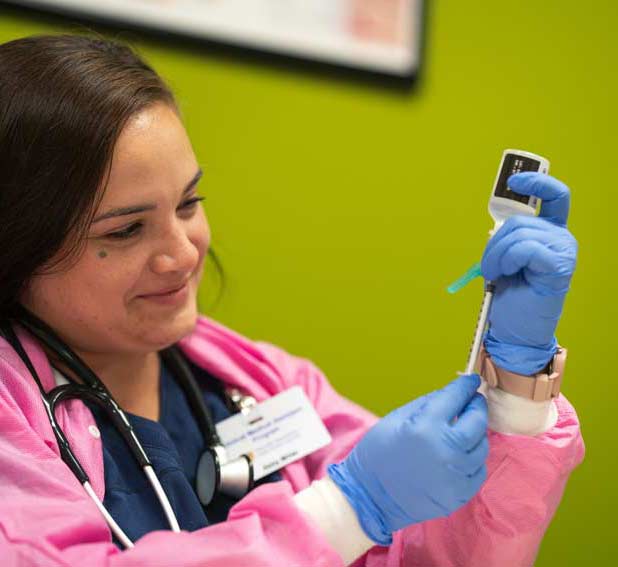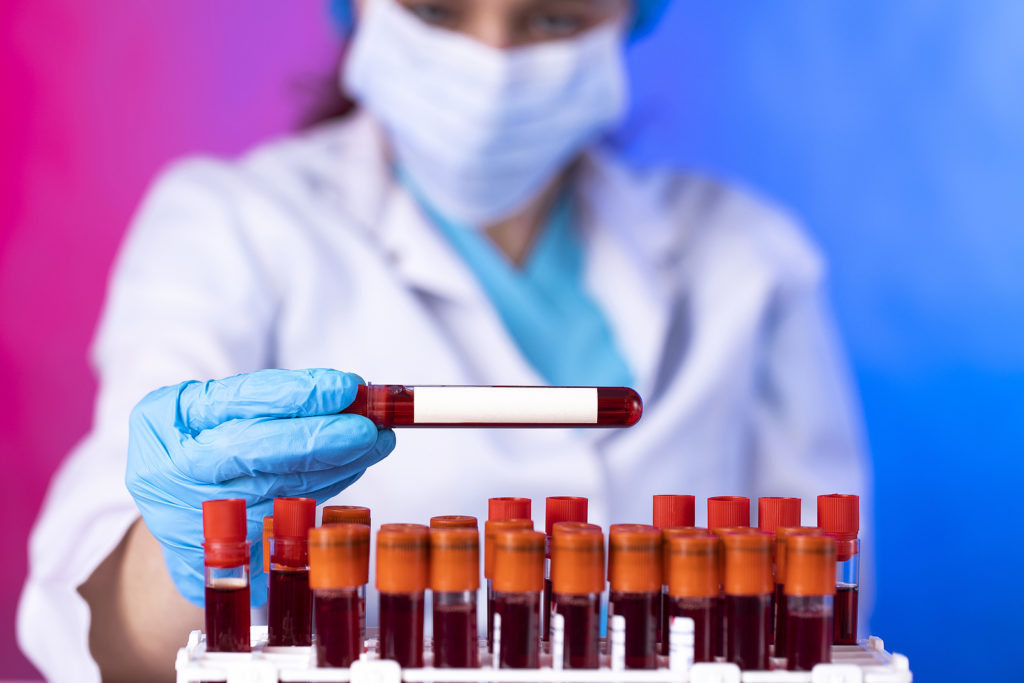Phlebotomy Courses Near Me: Step-by-Step Application Process
The Course to Qualification: Recognizing the Phlebotomy Educating Training Course Trip and Its Importance
As you consider the path to certification in phlebotomy, it's essential to understand the role you'll play in healthcare. Your training will cover vital skills, from blood collection methods to patient interaction. Each part of the program prepares you for the obstacles in advance. However just what does the journey involve, and why is certification so essential for your future profession? Let's explore these inquiries better.

The Duty of Phlebotomists in Health Care
Phlebotomists play an important duty in the health care system, acting as the crucial link in between patients and necessary diagnostic screening. You'll perform blood attracts, guaranteeing examples are collected precisely and safely. Your experience assists in diagnosing medical problems, keeping track of health, and assisting treatment decisions.
In your day-to-day communications, you'll need to develop trust fund with patients, making them feel comfy throughout what may be a difficult experience. You're liable for labeling and managing examples carefully to stop contamination or mistakes, which can affect test results.
Past this, you'll often work together with medical professionals and registered nurses, communicating vital info concerning patients' conditions. Your function is essential in keeping the operations in medical care settings, guaranteeing timely and precise results. By grasping your abilities, you add meaningfully to person treatment, making you an important part of the medical team. Accepting this obligation is crucial to your success as a phlebotomist.
Summary of Phlebotomy Training Programs
When exploring phlebotomy training programs, you'll find numerous kinds created to fit different schedules and learning designs. Each program assists you establish important skills like blood collection and person communication. Comprehending these choices is essential to choosing the appropriate course for your profession.
Sorts Of Educating Programs
A number of types of training programs are available for those seeking to end up being competent in phlebotomy. You can select from certification programs, which commonly last a few months and concentrate on important skills. There are also diploma programs that provide an even more comprehensive education, often lasting as much as a year. If you're searching for a much deeper understanding, an associate level in an associated area may be the best fit. Online programs provide versatility for those balancing work or household commitments, allowing you to research at your own pace. Additionally, some medical facilities and facilities supply on-the-job training programs, offering sensible experience while you find out. Whatever course you choose, each program aims to furnish you with the needed abilities for an effective phlebotomy profession.

Secret Skills Established
Understanding phlebotomy calls for a collection of key abilities that are developed through comprehensive training programs. You'll learn technical skills like proper vein selection, needle insertion, and blood collection techniques. These hands-on practices guarantee you can perform procedures securely and successfully. In addition, interaction abilities are basic; you'll require to engage with individuals, describe treatments, and put them at ease. Understanding makeup and physiology is critical, also, as it aids you find capillaries and understand the body's response to blood attracts. You'll obtain expertise of security protocols and infection control, ensuring you preserve a sterile setting. Each of these abilities is vital for your success as a certified phlebotomist, making you a valuable property in any type of healthcare setup.
Secret Components of a Phlebotomy Program
In a phlebotomy training course, you'll focus on crucial topics that lay the foundation for your future career. You'll engage in hands-on training that permits you to apply what you have actually learned in real-world setups. Both the core curriculum and sensible experience are important for your success as a phlebotomist.
Curriculum Overview
While seeking a phlebotomy training course, you'll come across a curriculum developed to outfit you with basic skills and understanding. Phlebotomy school. This educational program typically includes makeup and physiology, concentrating on the circulatory system and comprehending blood parts. You'll also discover around different sorts of blood collection methods, consisting of venipuncture and capillary slit methods
Furthermore, infection control and safety and security methods are important elements, guaranteeing you recognize how to preserve a clean and sterile setting. You'll study patient interaction, emphasizing communication and empathy, which are essential for easing client anxiousness. Moral and lawful factors to consider will certainly be addressed, preparing you for real-world responsibilities. This foundational knowledge will certainly allow you to succeed as a phlebotomist and give quality care in clinical settings.
Hands-On Training Experience
Getting hands-on experience is a vital part of your phlebotomy training program. This functional training enables you to use what you have actually learned in a real-world setup, improving your skills and self-confidence. You'll practice venipuncture strategies, discover just how to manage different kinds of specimens, and get aware of the equipment made use of in the field. Under the advice of knowledgeable instructors, you'll improve your skills, guaranteeing you're prepared for any kind of situation you could face.
Additionally, you'll obtain the chance to communicate with people, which is important for creating your communication more helpful hints skills. This mix of technological proficiency and interpersonal abilities is critical for your success as a licensed phlebotomist. Inevitably, hands-on training is where theory meets method, strengthening your expertise and readiness for accreditation.
Qualification and Licensing Requirements
Before you can start your occupation in phlebotomy, it is vital to understand the qualification and licensing requirements that differ by state. A lot of states require phlebotomists to hold an accreditation from a recognized company, such as the National Phlebotomy Association or the American Culture for Medical Pathology. These certifications typically include passing a test that examines your understanding and abilities in the field.
Along with accreditation, some states have specific licensing demands. You might need to finish a certain variety of hours in clinical technique, submit evidence of training, or undergo a background check. It is very important to investigate your state's regulations to ensure you fulfill all essential standards.
Staying educated concerning these demands not only helps you safeguard a placement yet also improves your trustworthiness as an expert. By meeting these needs, you'll be well on your way to a successful job in phlebotomy.
Hands-On Training and Practical Experience
Hands-on training and sensible experience are essential parts of your phlebotomy education and learning, as they enable you to apply theoretical expertise in real-world situations. Throughout your training, you'll involve in monitored venipuncture, find out correct methods, and come to be familiar with various blood collection equipment. This direct participation is vital for developing your confidence and honing your abilities.
You'll work carefully with knowledgeable specialists that can direct you through the nuances of patient communication and example handling. Each practice not only enhances your understanding however likewise prepares you for the hectic atmosphere of health care setups.
Furthermore, lots of programs integrate medical turnings, allowing you to experience varied setups, from medical facilities to outpatient facilities. This direct exposure aids you adjust to different challenges and person needs, ensuring you're well-prepared for your future duty. Embrace these opportunities, as they're vital to becoming a qualified and caring phlebotomist.
Difficulties Dealt With Throughout Training
While acquiring hands-on experience is vital, it's essential to acknowledge the difficulties that can occur throughout your phlebotomy training. Additionally, understanding the abilities required for blood attracts takes practice; you may struggle with technique initially.
Time administration can additionally be a difficulty, as harmonizing concept, sensible sessions, and individual dedications can really feel daunting. You might encounter differing discovering speeds among your peers, causing feelings of self-doubt if you think you're falling behind. Adjusting to the various characters of trainers can useful source be difficult, as each may have a distinct teaching style.
Identifying these barriers beforehand can prepare you for success and aid you establish durability throughout your training journey.
Career Opportunities After Qualification

As you obtain experience, you may even consider concentrating on locations like pediatric or senior citizen phlebotomy, catering to specific individual needs. Some phlebotomists pick to progress their professions by becoming research laboratory service technicians or seeking additional education and learning in healthcare areas.
Additionally, your qualification can lead to functions in training or monitoring brand-new phlebotomists, allowing you to share your expertise. With the healthcare sector constantly expanding, your abilities will certainly constantly remain in need, leading the way for a stable and satisfying job. Embrace the opportunities waiting on you!
Regularly Asked Inquiries
What Is the Typical Duration of a Phlebotomy Training Program?
Phlebotomy training programs typically last around four to 8 weeks. You'll take part in hands-on technique, classroom guideline, and online knowing. Finishing this training prepares you for qualification and a fulfilling career in healthcare.
Are Online Phlebotomy Courses Available?
Yes, on the internet phlebotomy programs are offered. They supply flexibility and benefit, enabling you to examine at your very own speed. Simply confirm the program is recognized to fulfill qualification needs and obtain beneficial skills for your career.
How Much Does Phlebotomy Training Usually Expense?
Phlebotomy training normally sets you back in between $700 and $2,500, depending upon the program and area. You need to take into consideration aspects like training course length, included products, and hands-on experience when picking the best training for you.
What Prevail Prerequisites for Phlebotomy Training?
Usual prerequisites for phlebotomy training frequently consist of a secondary school diploma or GED, booster shots, and a history check. Some programs may additionally need standard health care knowledge or qualifications, ensuring you're planned Bonuses for hands-on training.
Can I Work While Completing My Phlebotomy Training?
Yes, you can work while finishing your phlebotomy training. Lots of students equilibrium jobs with their researches, but ensure to manage your time successfully to guarantee you satisfy both job and training commitments effectively.